Anne Lamott's Bird by Bird
Chapters 24, 25 & 26
Anne Lamott (in Bird by Bird) says the dreaded writer’s block isn’t about being blocked; it’s about being “empty.” In today’s podcast we discuss Lamott’s approach to writer’s block, as well as her letter writing technique to get at the heart of your story. We also have an insightful conversation about why memoirists (or at least Renee) want strangers to read about their lives.
But before that, we have an interview with Kerry Muir from the The Writing Salon on what makes a workshop successful.
Want to hear more of our exercise workshop? We post the bonus podcast, SnarkNotes, and a detailed write up of the exercises on our Words to Write by Patreon account. And don’t forget to check out our free Writing Process Group on meetup.
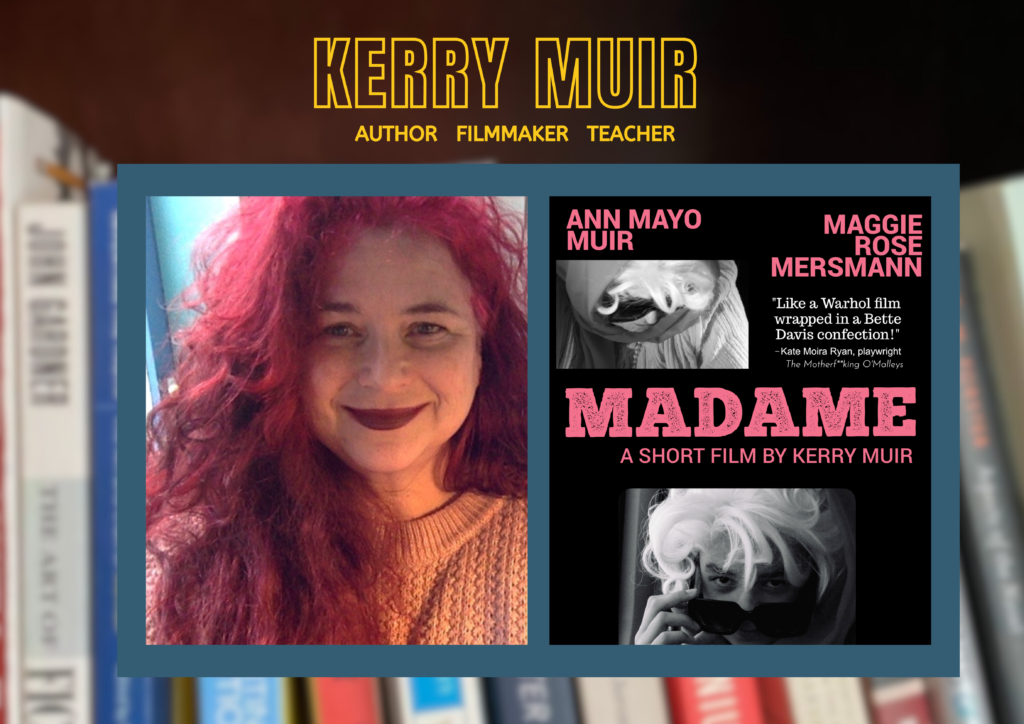
In our previous episode, we shared our good and bad with Writing Workshops. Sometimes deemed a necessary evil for turning a draft into a workable manuscript, writing critique groups have their share of horror stories. However, it’s just as easy – more so we think – to find supportive communities and helpful mentors providing friendly, yet critical feedback.

In this current episode, film maker, playwright and essayist, Kerry Muir, discusses her role as a writing workshop facilitator at The Writing Salon. With decades of experience guiding writers toward their goals, be it publication or improving craft, Kerry carves out creative spaces for students to take risks, be productive, and develop their identities on the page.

Kerry Muir is the author of The Night Buster Keaton Dreamed Me, and Befriending Bertha/Conociendo a Bertha (a one-act play for children), both of which were published in dual language (Spanish-English) editions by NoPassport Press, as part of the Dreaming the Americas series curated by Lifetime Achievement Obie Award-winning playwright, Caridad Svich. Kerry’s plays have garnered awards and received productions at The Nantucket Short Play Festival, Great Platte River Playwrights Festival, Gibraltar International Drama Festival, and elsewhere.
Her prose has appeared in Kenyon Review Online, Crazyhorse, Riverteeth, West Branch, Willow Springs, Fourth Genre and more. Two of her essays, “The Bridge” and “BLUR,” were named as notable in Best American Essays of 2011 and 2018, edited by Edwidge Danticat and Hilton Als, respectively. She recently completed her first film, “Madame,” a noir-experimental short, which is currently making its way around the film festival circuit. Her book, Running on Moontime, is slated for publication in the fall of 2023.
The Writing Exercise
Tell part of your history or your character’s history in the form of a letter.
Letters
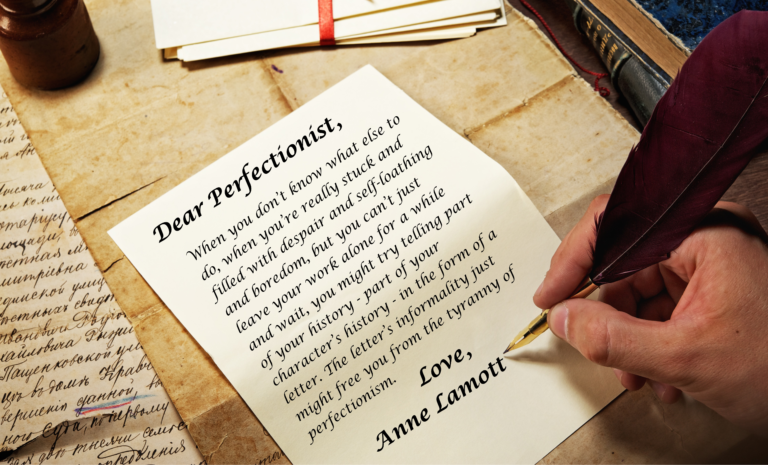
More focused than a free-write and more generative than a plot treatment, you take the stressful act of showing out of the telling and the burdensome craft of writing out of composing.
Kim and Renee tackle this assignment on the podcast. On this week’s episode, you’ll hear Renee tell Kim all about the drama, details, and chaos that just wasn’t coming together into a cohesive narrative. You’ll also hear how Kim ultimately saves Renee from writing herself into a deeper hole. If you want to hear what we have to say about Kim’s letter, head over to Patreon for our bonus episode.
Writer's Block (Sucks)
According to the Renee’s Totally Legit & Very Real Dictionary:
- Writer: a person who writes words in order to entertain others.
- Block: a wall or obstructing force.
- Writer’s Block: the reason Winds of Winter is twelve years overdue.
According to Lamott’s Completely Sanctioned Dictionary Definition: Writer’s Block isn’t a wall or obstruction at all; it’s an “emptiness.”
“The word block suggests that you are constipated or stuck, when the truth is that you’re empty.”
-Anne Lamott
Whether it’s a wall, an aneurism, or your brain holding Broca’s Area (and your next sentence) hostage, on one thing we – and George R.R. Martin – can all agree: Writer’s Block sucks. Given that finished books do exist (I know because we’ve evidence of them in the wild), we have proof other writers have found ways to deal with it.
Lamott’s method takes a more Momento Mori approach for “filling up” those creative tanks:
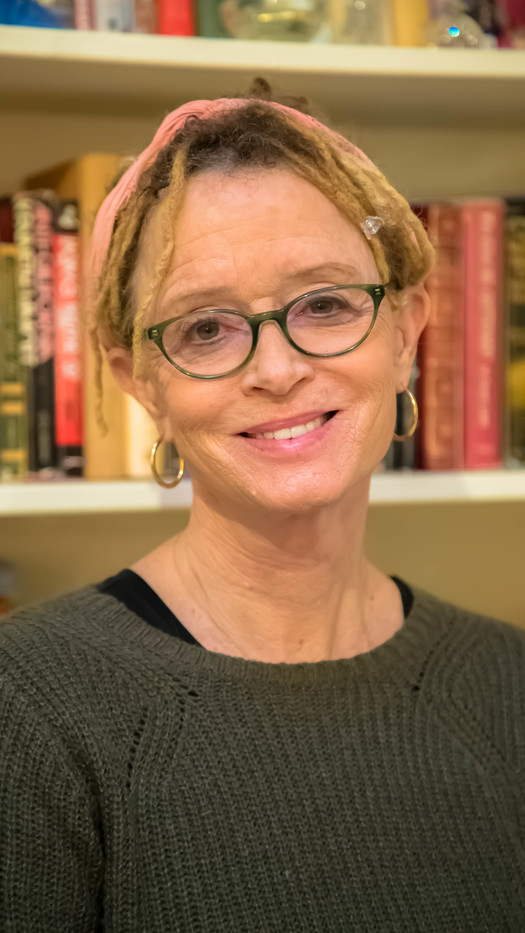
Writing as a Present
We slave over a hot keyboard all day and, in the end, we’re lucky to have some form of publication to show for our efforts. We know that can’t be the only goal – right? It’s not a given that all of those hours and days and years spent shaping our novels and memoirs and poems will result in a spot on a bookshelf in a bookstore.

In this chapter, Lamott shares her experiences of writing books as presents, which she offers as an alternate reason to write your book. When her father was diagnosed with cancer, she wrote a book about him, for him. In a way, she was “writing him a love letter.” This approach to writing frees us from ourselves, our ambitions, and helps us write our stories authentically. The pursuit of writing should be more than being published. When we’re writing to extend a legacy or as a gift of support for someone else, we make our efforts so much more meaningful.
On a more critical note about this chapter as a whole, one could argue nine or ten pages might be too much space to describe how one could write a book as a present. One could also argue a writing craft book, especially when it reaches the second to last chapter, begs to be skimmed.
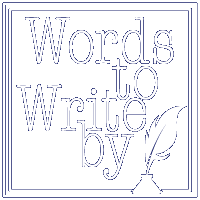
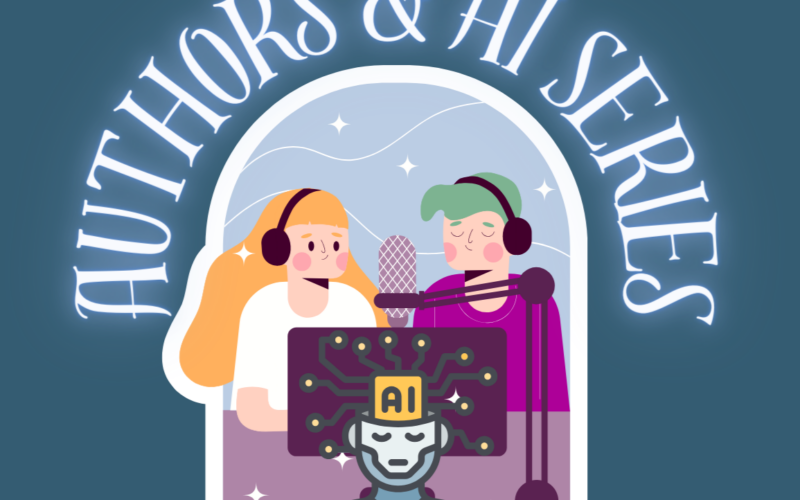
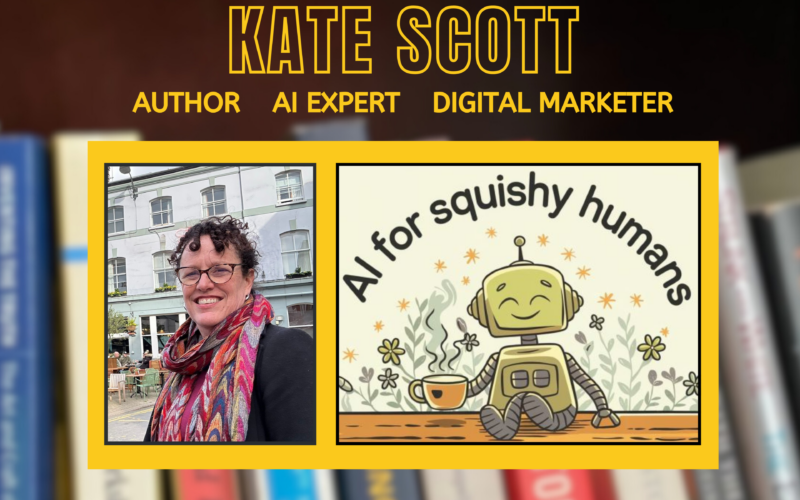
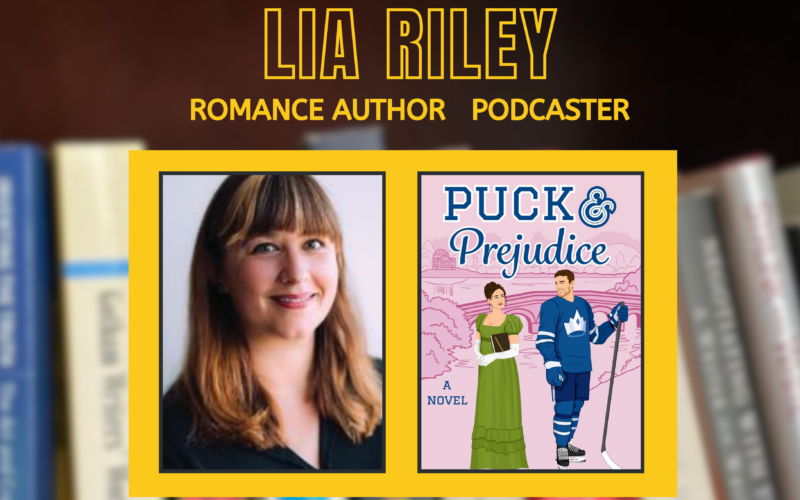
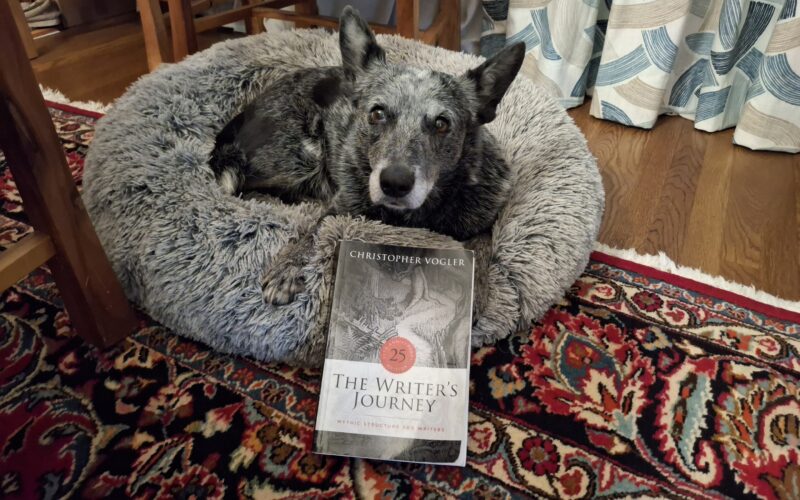
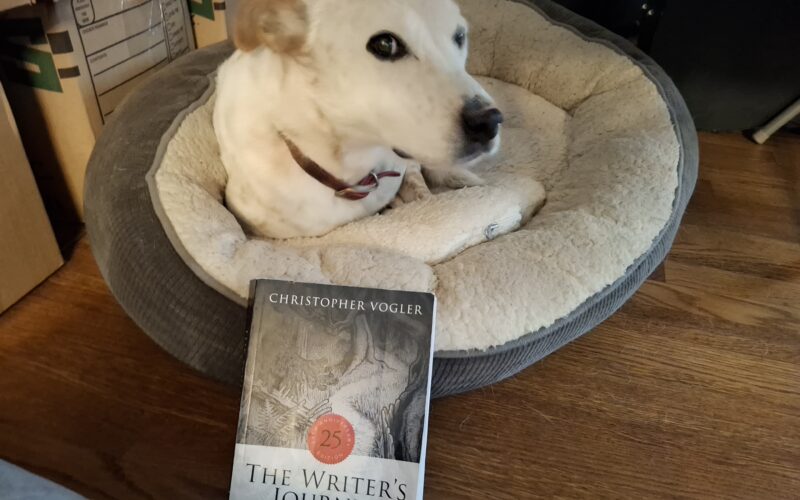
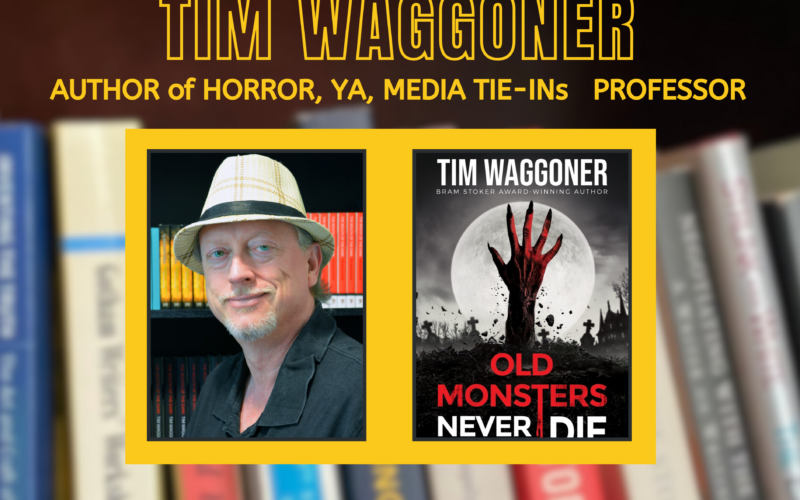
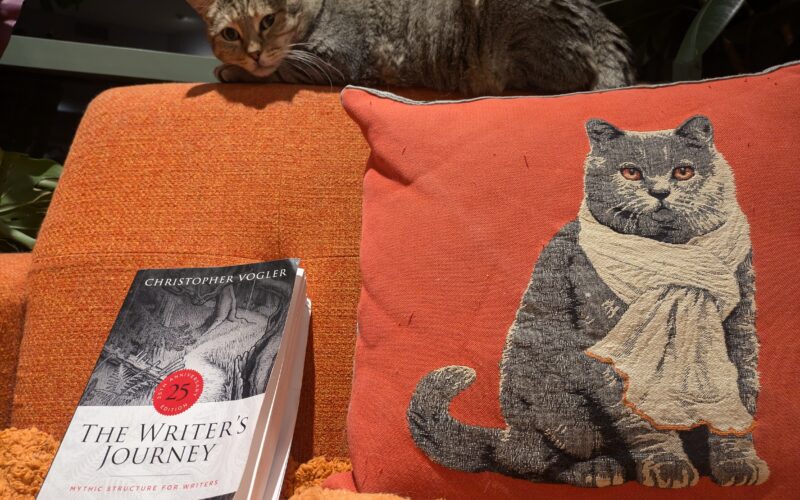
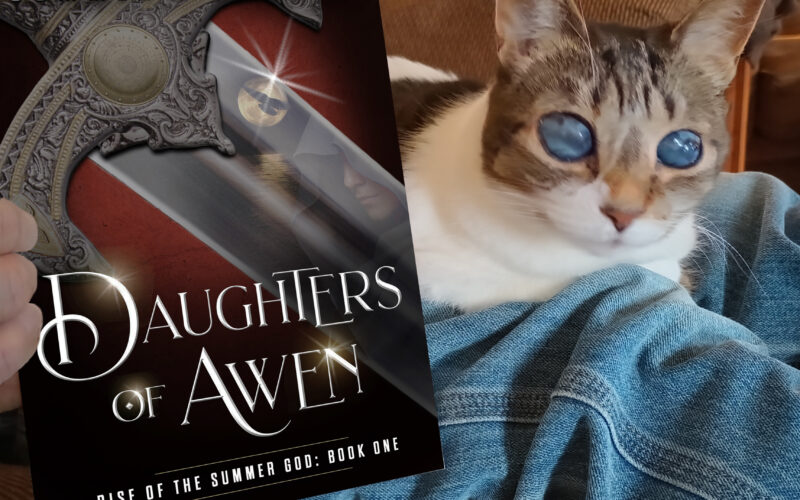

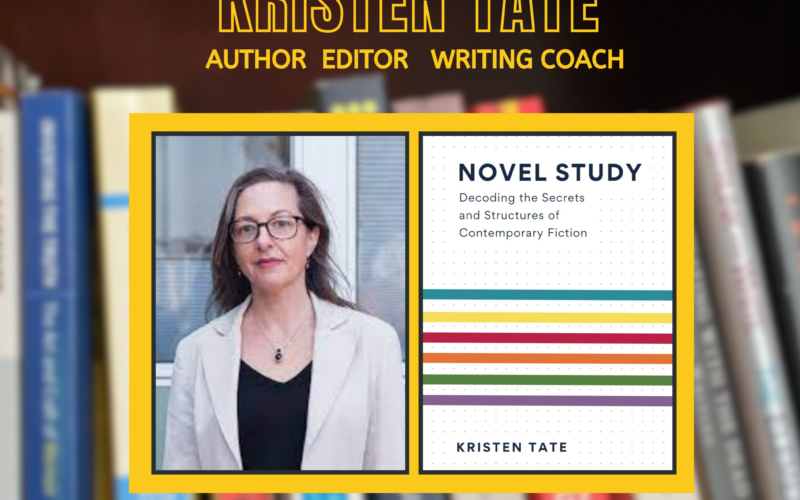
Not Your Usual Words to Write By: The AI Podcasting Challenge
Authors & AI SeriesEpisode 7: Not Your Usual Words to Write By: The AI Podcasting Challenge! Is nothing sacred? After exploring how AI might steal our writing jobs, we’re...